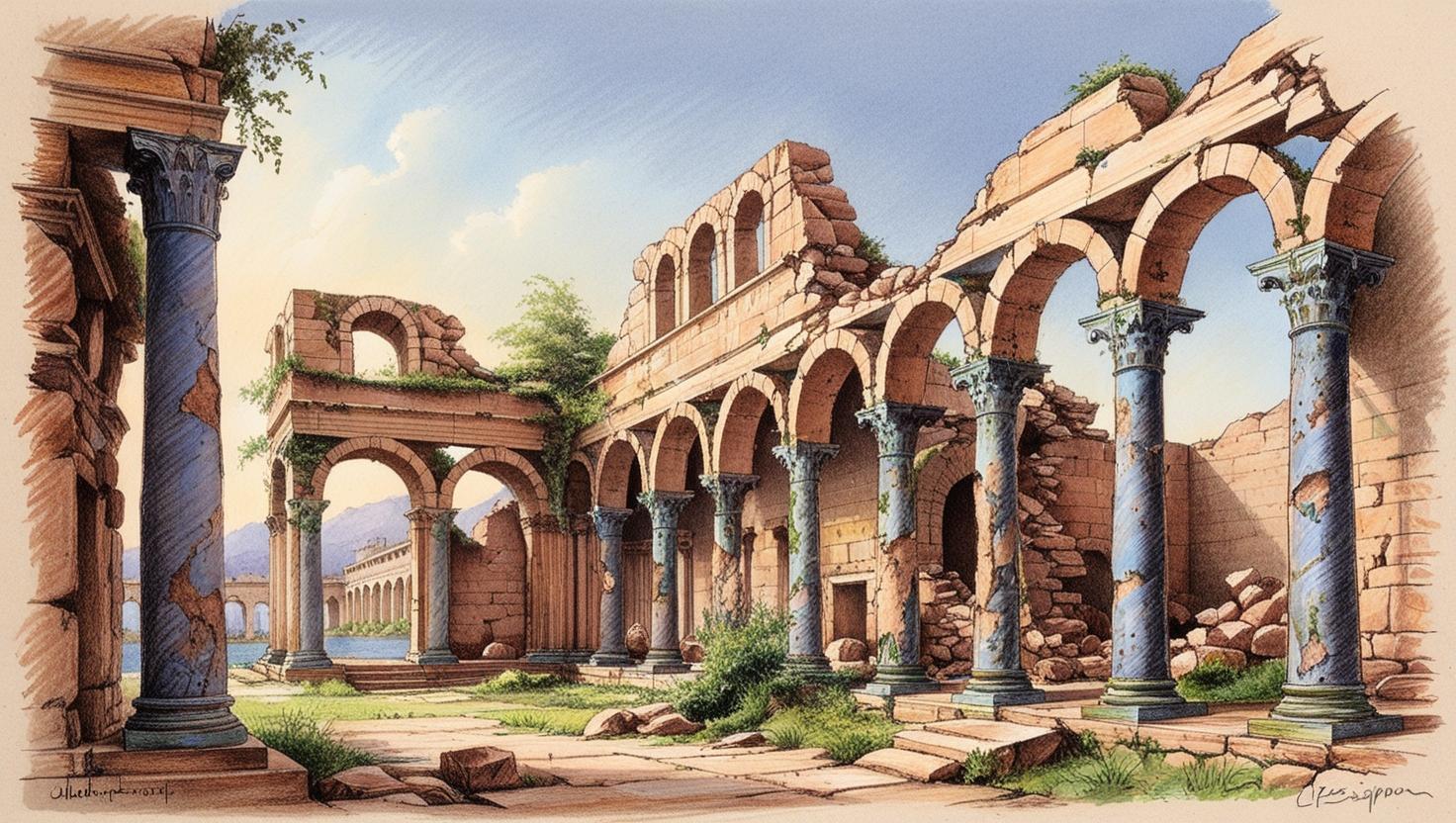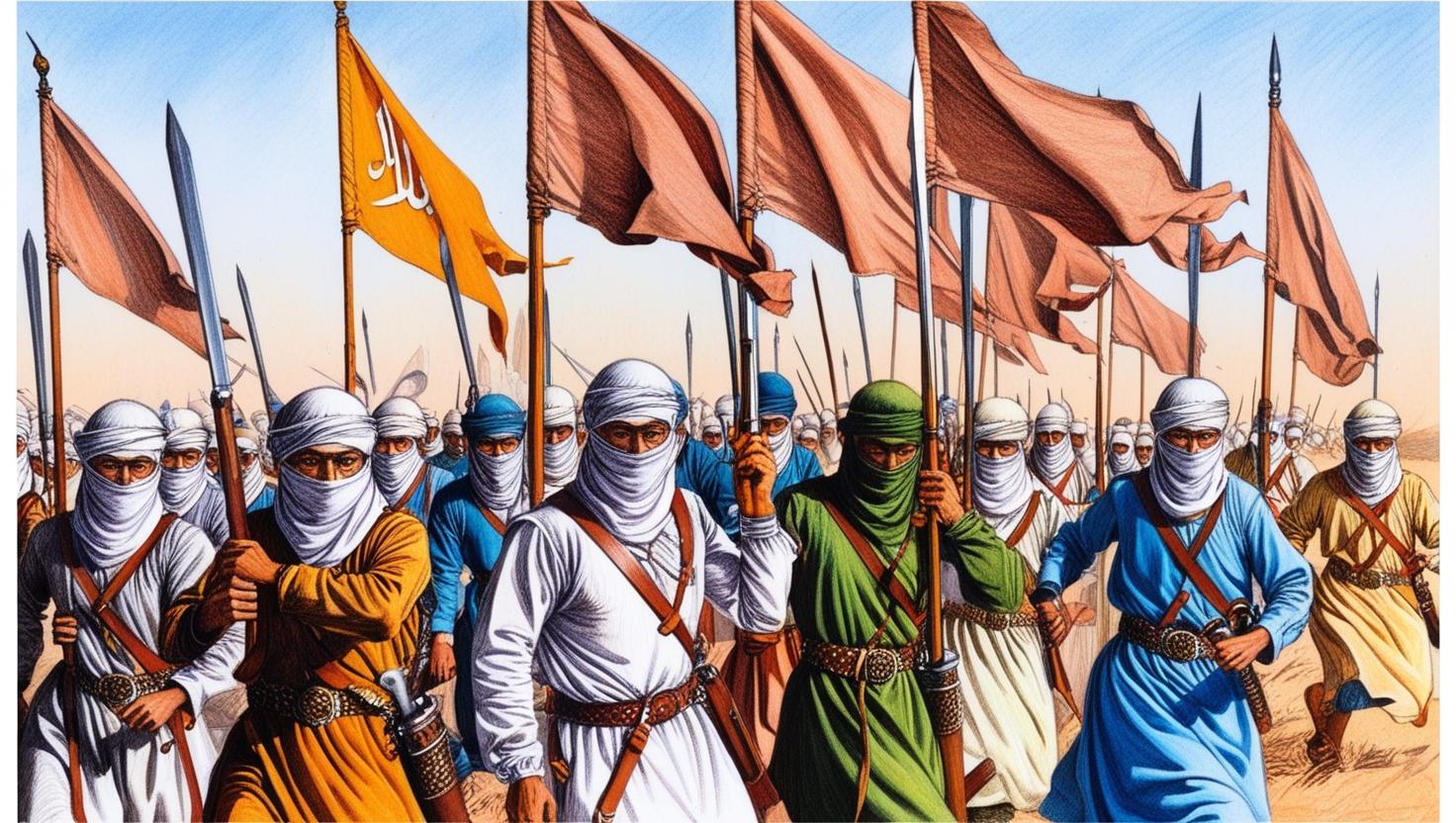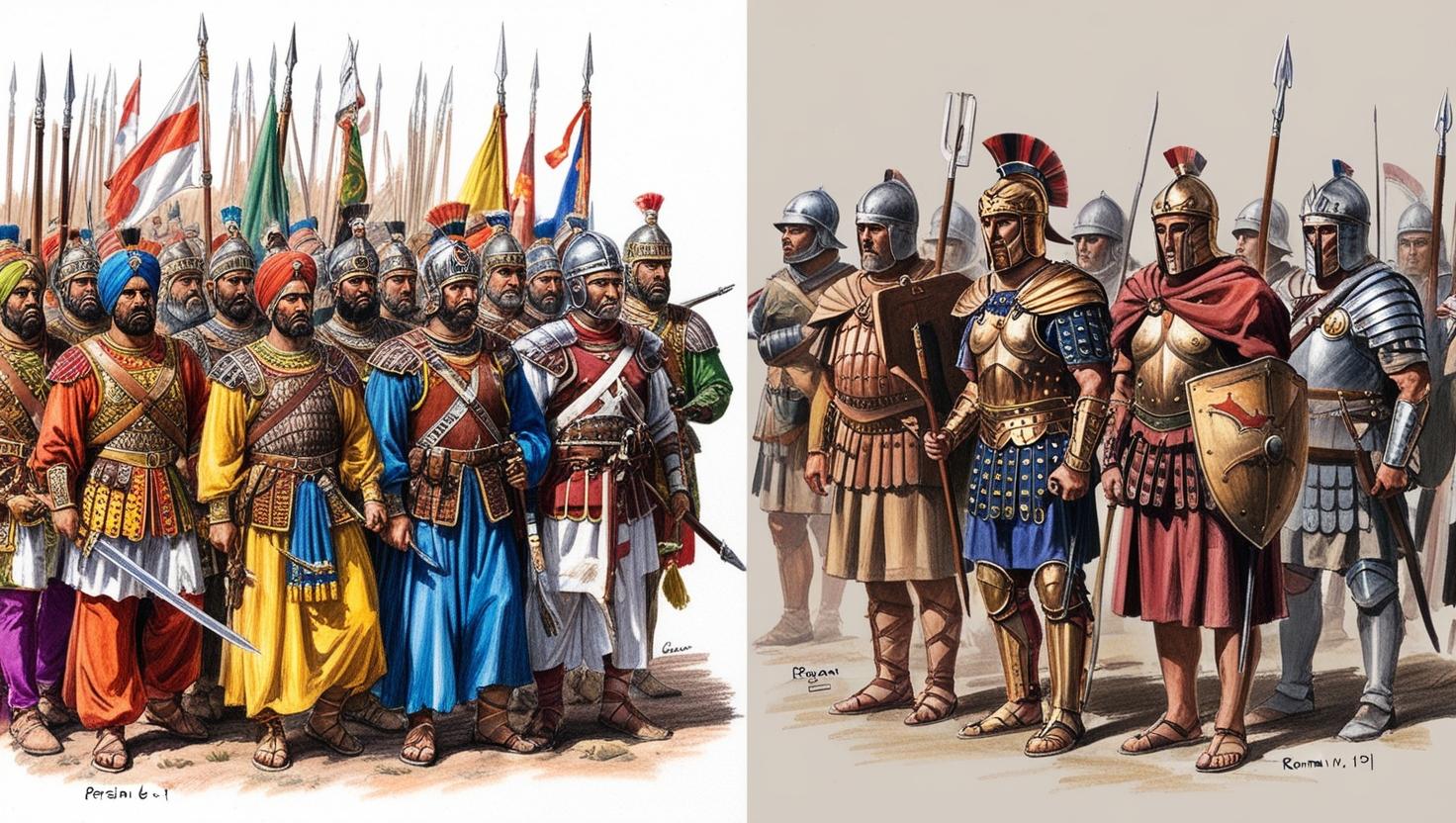


Umar, also known as Umar al-Faruq ('the Just'), was the second caliph of Islam after the death of Prophet Muhammad ﷺ and the successor to Abu Bakr.
During his ten-year caliphate, Islam spread rapidly across Syria, Iraq, Persia and into North Africa, becoming the largest empire of its time.
Umar was known for his bravery and strength, even before embracing Islam. The Prophet Muhammad ﷺ praised him on several occasions, once stating, "If there were to be a prophet after me, it would have been Umar."
The Battle of Yarmouk was a turning point in the Muslim campaign against the Roman Empire. Although outnumbered, the Muslims, fired up with the enthusiasm of faith and the presence of many Companions, were able to rout the Roman army and take control of several Roman provinces.
When the Muslim forces were about to capture Jerusalem from the Romans, the Patriarch of the city sent a message to the Muslim commander that they would only surrender the Holy City to the Caliph in person. When Umar was told of this in Medina, he immediately set forth to Jerusalem, and accepted the keys to the city by his own hand. Umar ordered that Christian places of worship in the Holy Land should not be disturbed, and both Christians and Jews were permitted to practice their religions under the new Islamic Realm.

Umar sent an army under the command of the famous warrior and Companion, Sa'd son of Abi Waqqas, against the great Persian Empire. After several smaller encounters, the Persians sent forth a huge army, ked by the renowned general, Rustam, and the Muslims faced war elephants for the first time. The forces met at Qadisiyya and, although vastly outnumbered, the Muslims were victorious.
With the ancient land of Mesopotamia (Iraq) captured, the Muslim armies began their advance deeper into the Persian heartlands. City after city fell to the new faith, including what was probably the greatest city on earth at the time, Ctesiphon, the capital of the Persian Empire.
Umar wept when he saw the prophecies he had heard from the Prophet Muhammad fulfilled, and booty from the conquests flooded into Medina. He knew that riches could cause enmity and mutual bitterness, and a nation that had these evils could lose its respect.
The decisive moment came at Nahavand, where the Muslims once again defeated a numerically superior force, resulting in the death blow that ended the once-mighty Persian Empire.
When the Muslims captured the fertile land of Iraq, Umar decreed for the conquered population to be treated with magnanimity, free to practice their own religion and live according to their own laws.
A very significant decision of Umar involved the matter of what would happen to the land of the conquered territories. It had been common practice for the lands of conquered people to be divided among the conquerors, but Umar forbade this in the vast new realms outside of Arabia that were falling to the Muslims. He decreed that the peasant farmers should retain possession of their lands as free men and women.
Despite the difference in religion, many peasants and ordinary people preferred the light rule of Islam to the imperial oppression they had endured for centuries.
Umar also ordered the building of two new garrison towns, Kufa and Basra, where Muslim soldiers were to be stationed. Careful administrative records (diwan) were kept to register and record names and salaries of soldiers and citizens.
Umar was murdered in Medina whilst leading the prayer. Before his death, he appointed a panel of six leading Companions to decide the matter of succession and ordered that it be completed within three days of his death.
His final request was to be buried next to his two companions, the Prophet and Abu Bakr, where his body lies to this day.

Until today, historians are amazed that Umar took on not one super-empire of his day, but two! He sent armies against both the Romans and the Persians. Not only were the Muslims vastly outnumbered in the battles, they faced superior imperial weaponry and trained, professional soldiers.
What do you think made the Muslims take on both empires at the same time?
Umar's legacy was significant in the spread of Islam and the establishment of a just and fair governance system, where people of different religions and cultures were treated with respect and dignity.
When Umar travelled to Jerusalem to accept the surrender of the city, he travelled simply, with one servant and one camel. Along the way, he took equal turns with his servant to ride the camel. When approaching the city, it so happened that it was the servant's turn to ride. All the people were waiting and eagerly anticipating the arrival of a great leader. When they saw the two approaching, they rushed to pay their respects to the rider, assuming that he must be the Caliph.